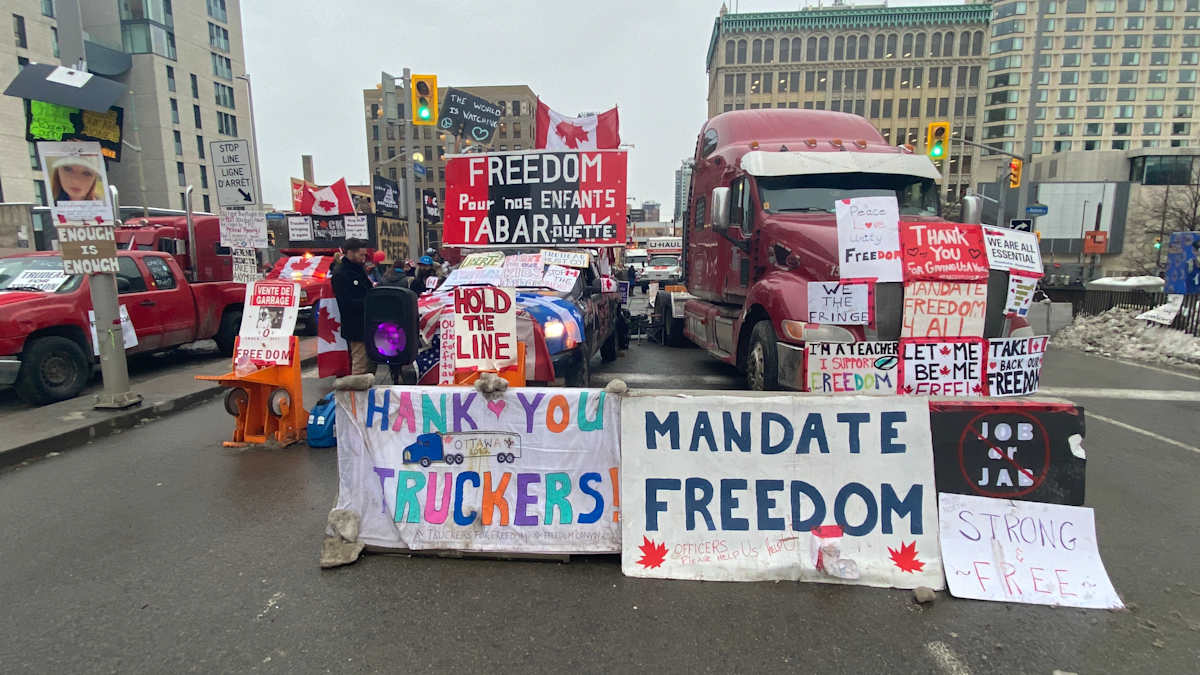A Canadian court called the release of documents that may reveal details about the collaboration between federal officials and law enforcement in freezing the bank accounts of a protester linked to the Freedom Convoy.
The RCMP and TD Bank [1] will need to release documents pertaining to Evan Blackman, a participant in the 2022 protests whose bank accounts were frozen despite not facing any criminal charges at that time. The Ontario Court of Justice delivered this ruling, as announced by the [2] Justice Centre for Constitutional Freedoms or JCCF. The JCCF represents Blackman and contends that the measures taken against him constituted a significant overreach of authority.
The Justice Centre for Constitutional Freedoms [3] issued a statement regarding a ruling by the Ontario Court of Justice. The organization is advocating for Blackman, whose legal representatives contend that the measures implemented against him constituted a significant abuse of authority. Chris Fleury, a constitutional lawyer representing Blackman said, “The freezing of Mr. Blackman’s bank accounts was an extreme overreach on the part of the police and the federal government, these records will hopefully reveal exactly how and why Mr. Blackman’s accounts were frozen.”
Blackman was [4] arrested during the large-scale demonstrations in Ottawa, which attracted thousands of Canadians rallying against vaccine mandates and other restrictions implemented during the pandemic. In [5] a press release from the Justice Centre for Constitutional Freedoms, it was announced that Evan Blackman successfully had charges of mischief under the Criminal Code and obstruction of police dropped by the court. This decision came after law enforcement officials were unable to recall crucial details regarding Blackman's arrest and presented minimal evidence supporting the allegations. “My client and I are thrilled with this outcome. After almost 20 months, Mr. Blackman can finally put this matter behind him,”said Chris Fleury.
Initially charged with mischief and obstructing police, these allegations were dismissed in October due to insufficient evidence. However, prosecutors have since filed an appeal, and a trial is scheduled to commence on August 14. During the peak of the protests, TD Bank froze three of Blackman's accounts in compliance with government directives issued under the Emergencies Act. This act, invoked by former Prime Minister Justin Trudeau, granted [6] the Canadian government extensive powers to mitigate the protest movement, including the unprecedented ability to involve financial institutions in penalizing individuals for their involvement or support.
In 2024, a Federal Court Justice determined that Prime Minister Trudeau's decision to [7] invoke emergency measures was unjustified. Richard Mosley [8] a Federal Court Justice said “The potential for serious violence, or being unable to say that there was no potential for serious violence was, of course, a valid reason for concern," he wrote. "But in my view, it did not satisfy the test required to invoke the Act, particularly as there was no evidence of a similar 'hardened cell' elsewhere in the country, only speculation, and the situation at Coutts had been resolved without violence.”
Blackman’s legal team intends to utilize the recently disclosed documents to highlight the degree of government interference in individual liberties. The Justice Centre for Constitutional Freedoms has indicated that this case could mark a precedent in Canada, as it is potentially the first criminal trial to incorporate a Charter challenge regarding the freezing of personal bank accounts under emergency legislation.
